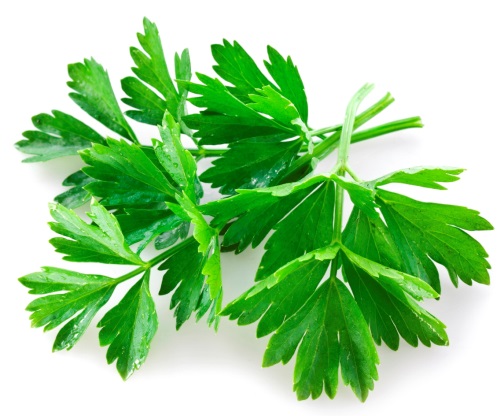EMBARGOED FOR RELEASE | September 12, 2013
Cilantro, that favorite salsa ingredient, purifies drinking water
Note to journalists: Please report that this research was presented at a meeting of the American Chemical Society
A press conference on this topic will be held Wednesday, Sept. 11 at 8:30 a.m. in the ACS Press Center, Room 211, in the Indiana Convention Center. Reporters can attend in person or access live audio and video of the event and ask questions at www.ustream.tv/channel/acslive.
INDIANAPOLIS, Sept. 12, 2013 — Hints that a favorite ingredient in Mexican, Southeast Asian and other spicy cuisine may be an inexpensive new way of purifying drinking water are on the menu today at the 246th National Meeting & Exposition of the American Chemical Society, the world’s largest scientific society.
The meeting, which began Sunday and ends today, included almost 7,000 reports on new discoveries in science and other topics.
Reporting on research done by undergraduate students at a community college, Douglas Schauer, Ph.D., said that cilantro — also known as coriander and Thai parsley — shows promise as a much-needed new “biosorbent” for removing lead and other potentially toxic heavy metals from contaminated water.
“Cilantro may seem too pricey for use in decontaminating large amounts of water for drinking and cooking,” Schauer said. “However, cilantro grows wild in vast amounts in countries that have problems with heavy-metal water pollution. It is readily available, inexpensive and shows promise in removing certain metals, such as lead, copper and mercury, that can be harmful to human health.”
Conventional methods for removing heavy metals from water such as treatment with activated carbon (used in the filters in home water purification pitchers) or more advanced technology like ion-exchange resins are very effective. However, they can be too expensive for use in developing countries, especially in rural areas. The need for lower-cost, sustainable alternatives has fostered research on biosorbents. These natural materials, which range from microbes to plants, latch on to heavy metals in ways that include both absorption and adsorption.
“Our goal is to find biosorbents that people in developing countries could obtain for nothing,” Schauer explained. “When the filter in a water purification pitcher needs to be changed, they could go outside, gather a handful of cilantro or some other plant, and presto, there’s a new filter ready to purify the water.”
Schauer, who is with Ivy Tech Community College here, enlisted his students in that quest, and they worked with scientists at the Universidad Politécnica de Francisco I. Madero in Hidalgo. Mexico does not have a system to filter out heavy metals, said Schauer, noting that cilantro grows wild there. Their small-scale experiments suggested that cilantro may be more effective than activated carbon in removing heavy metals such as lead.
Cilantro’s secret may lie in the structure of the outer walls of the microscopic cells that make up the plant. They have an architecture ideal for sorption of heavy metals. Other plants, including cilantro’s cousins, parsley and culantro, have similar features and could potentially work as biosorbents, he added. Schauer thinks that biosorbents like cilantro could be packed into tea-bag-like packets, reusable water filter cartridges or even tea infuser balls and used to remove heavy metals.
Schauer and his team cited a grant through the Lilly Foundation for instrumentation and a Perkins grant in support of the Chemical Technology and Biotechnology Programs, also used for instrumentation. Six students traveled to the University in Mexico to collect and investigate samples. Funding for this was provided largely by the Louis Stokes Alliances for Minority Participation.
To automatically receive news releases from the American Chemical Society, contact newsroom@acs.org.
# # #
The American Chemical Society is a nonprofit organization chartered by the U.S. Congress. With more than 163,000 members, ACS is the world's largest scientific society and a global leader in providing access to chemistry-related research through its multiple databases, peer-reviewed journals and scientific conferences. Its main offices are in Washington, D.C., and Columbus, Ohio.
Media Contact
During the national meeting, Sept. 6-11, the contacts can be reached at 317-262-5907.
Michael Bernstein
m_bernstein@acs.org
202-872-6042
Michael Woods
m_woods@acs.org
202-872-6293






